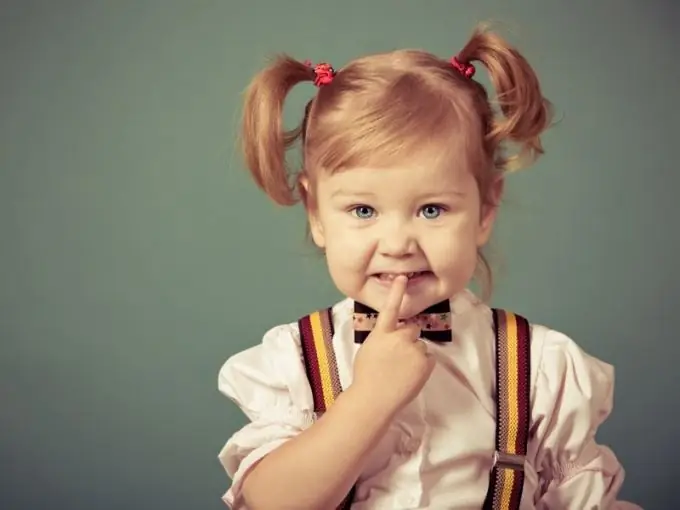- Author Horace Young young@householdfranchise.com.
- Public 2023-12-16 10:35.
- Last modified 2025-01-23 11:41.
As children develop and grow up, they master more and more space, including at home, and also gain life experience. It is important that all these processes are safe for the child.

Regardless of age and developmental level, you need to hide the following from children:
- medicines;
- pesticides and potent substances (essential oils, dietary supplements, etc.);
- alcohol and cigarettes;
- weapons;
- at the request and discretion of the parents - valuable things and money.
What to hide from children who are learning to crawl and walk
When a child begins to actively explore the world around him, his parents need to make this process as safe as possible - both for the baby and for the home. The first step is to remove all fragile and valuable objects from the child's reach. Do not leave cell phones, laptops and other devices in an accessible place - the child can not only pull on the wire and drop them on himself, which is fraught with injuries, but also break quite expensive things.
It is important to assess the potential harm from all objects that may be in the reach of the child, and then hide the most dangerous of them. For example, magazines - children under one year old are able to tear off a piece of a page and put it in their mouths, at the risk of choking. If an adult is not nearby at this moment, such a situation can become dangerous to the health and even the life of the child. Therefore, books, magazines, newspapers, plastic bags and everything that can become a source of various troubles must be lifted higher or hidden.
Many experts recommend that parents spend a few minutes a day explaining to the child the possible consequences of certain actions - in this case, much less things will have to be hidden later.
Safety of older children
Popular wisdom says: "little children - little troubles", implying that as children grow up, the scale of troubles, unfortunately, can increase. Usually, children who are 5-6 years old already understand the danger posed by a glass of hot tea, sharp scissors and an electric wire sticking out of the ground (of course, if the parents made sure that their child learned such things in time). Thus, you can no longer hide the scissors and the needle bar, as well as other accessories for needlework (of course, if there are adults nearby who are in control of what is happening), but at the same time, it’s time to remove some other items.
At preschool age, many children often begin to show interest in books and can react strongly to what they see. You should not leave in an accessible place materials that can harm the child's psyche, for example, magazines and newspapers with descriptions of crimes and corresponding photographs. If there are adult books or magazines in the house, it is also time to hide them well. It will not be superfluous to check the illustrations in books that may be available to the child, just in case.
Cosmetics and household chemicals
Ideally, a child by the age of 5-6 already has some idea of who, how and why uses this or that object. For example, a girl who sees her mother using deodorant not only fully understands the meaning of what is happening, but she herself is able to use it if she wants to. However, a child who was not explained in time for whom and for what perfume and powder, mascara and lipstick are needed, as well as how to use them, can, firstly, get injured, an allergic reaction or poisoning, and secondly, ruin expensive cosmetics …
Do not store household chemicals in containers for baby food, sweets or edible products - this can cause poisoning if the baby accidentally opens the bottle or box and decides to taste the contents.
After seeing that the child is interested in an object, it is better to spend a little time explaining and showing how to use it correctly. Otherwise, the kid himself will try to satisfy his curiosity, having reached the "forbidden fruit". If a child, for example, decides to repeat his mother's gesture and tries to open the perfume with a spray bottle, there is a high probability that the jet will get into the face and eyes. To avoid this, it is better to hide such objects in advance or teach the child to use them correctly as soon as possible.






